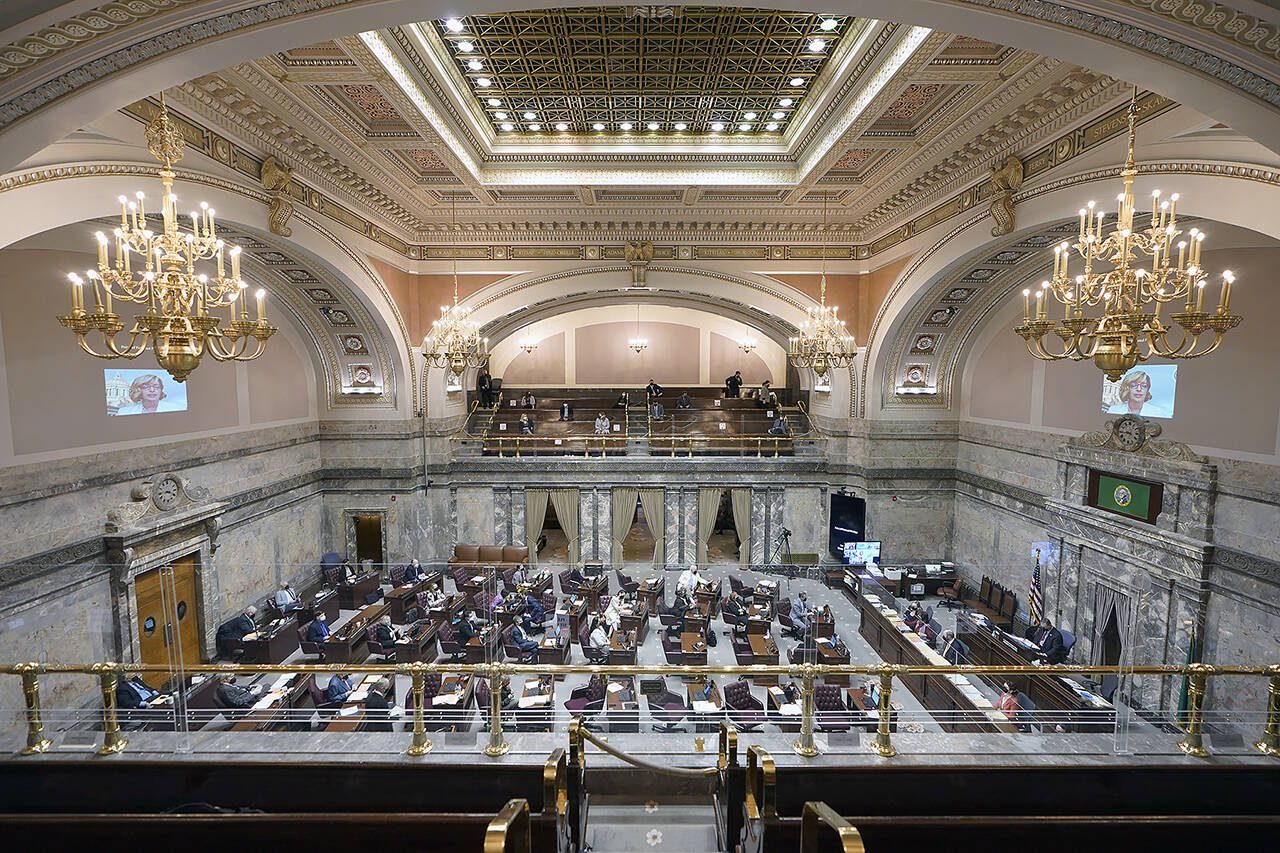By The Herald Editorial Board
State lawmakers — in rejecting a crafted compromise in the session’s final hours that would have made possession of illegal drugs a gross misdemeanor while allocating $271 million to bolster access to treatment — appear content to allow county and city governments to take the lead and go their own ways on attempting to balance enforcement and treatment as communities continue to confront the effects of addiction to opiates, meth and other drugs.
That’s a high-stakes wager that is likely to result in a range of laws and approaches that could lead to unpredictable consequences for communities and less certainty in encouraging those struggling with addiction to enter needed treatment and break that disease’s hold on their lives.
A legislative fix was sought following the Washington state Supreme Court’s 2021 ruling that found the state’s felony law on drug possession was unconstitutional because it could convict someone who unknowingly possessed narcotics. The Legislature adopted a stop-gap measure that reinstated possession as a misdemeanor, punishable by jail time of up to 90 days and a $1,000 fine.
Local jurisdictions, correctly, said that level of consequence simply was not enough to persuade those with addictions to agree to referrals for treatment and its satisfactory completion. At the same time, the stop-gap law further complicated the work of law enforcement and social workers who could only refer someone for treatment during the first two contacts for possession before an arrest was allowed, a requirement that wasn’t practical.
While holding to the principle of not being able to arrest their way out of the problem, city leaders said some threat of more substantial punishment was necessary to move people into treatment.
Frustrations over the current law and other recent law enforcement reforms led last fall to a countywide campaign — Mayors and Business Leaders for Public Safety — that pushed for reconsideration of the possession law and other recent changes. The group, representing 15 Snohomish County cities and led by Everett Mayor Cassie Franklin, Marysville Mayor Jon Nehring, Lake Stevens Mayor Brett Gailey and Sultan Mayor Russell Wiita, got that reconsideration but, in the end, opposed the final compromise, asking instead to “give local governments the authority to address issues related to drug possession, public drug use and treatment incentives in their own jurisdictions.”
After considerable back-and-forth all session in Olympia and effort by state Sen. June Robinson, D-Everett, to craft a compromise, a final conference agreement was considered Sunday but was rejected 43-55 in the House, with 15 Democrats joining all Republicans in defeating the bill. While the no votes were bipartisan in outcome, the opposition was split among some Democrats who found the bill’s punishments too harsh and Republicans who said the bill wasn’t tough enough.
What the legislation would have provided was imposition of a stiffer penalty for possession as a gross misdemeanor, including up to a year in jail and a $5,000 fine, far more persuasive than the lesser misdemeanor’s 90 days in jail and $1,000 penalty. It also would have allocated up to $271 million in increased funding for local treatment facilities and recovery services and would have deemed many of those new and expanded sites as “essential facilities,” streamlining their approval in jurisdictions where they are most needed and getting around the “nimbyism” that too often frustrates the solutions that communities are demanding.
The compromise also would have created a pretrial diversion program and would have allowed for convictions to be cleared from records after successful competition of a treatment program; a considered balancing of carrot and stick.
The mayors group, however, felt language wasn’t strong enough to hold defendants to completing treatment and objected to a provision, as it outlined in a news release on Sunday afternoon, that would have “authorized local governments to distribute ‘smoking equipment’ and ‘other public health supplies,‘“that the group said would condone drug use.
Yet, there is a bold line between “authorize” and “require,” and certainly the mayors group understands that there are “public health supplies” that can be effective in harm reduction efforts and can increase opportunities for contact that can move individuals into treatment. The legislation would have left that call to local governments; it was not a mandate.
Gov. Jay Inslee could call lawmakers back for a special session, but that would require lawmakers’ consensus behind a proposal. Sen. John Braun, R-Centralia, and Rep. J.T. Wilcox, R-Yelm, minority leaders of their respective caucuses, in an interview Monday afternoon, said a special session is possible. There are Republicans, both in the Senate and House, Braun said, who backed Robinson’s original proposal, but could not support the changes made in the House, citing concerns from cities and counties.
But if not, with the current stop-gap measure expiring July 1, local counties and cities will be left to adopt their own laws. That’s likely to result in, as Sen. Manka Dhingra, D-Redmond, chair of the Senate Law and Justice committee, called it, “a hodge-podge” of laws and punishments, that across the state will result in confusion, inequitable outcomes and, perhaps, leave us no closer to relief from our shared addiction crisis and its knock-on effects.
Talk to us
> Give us your news tips.
> Send us a letter to the editor.
> More Herald contact information.

























